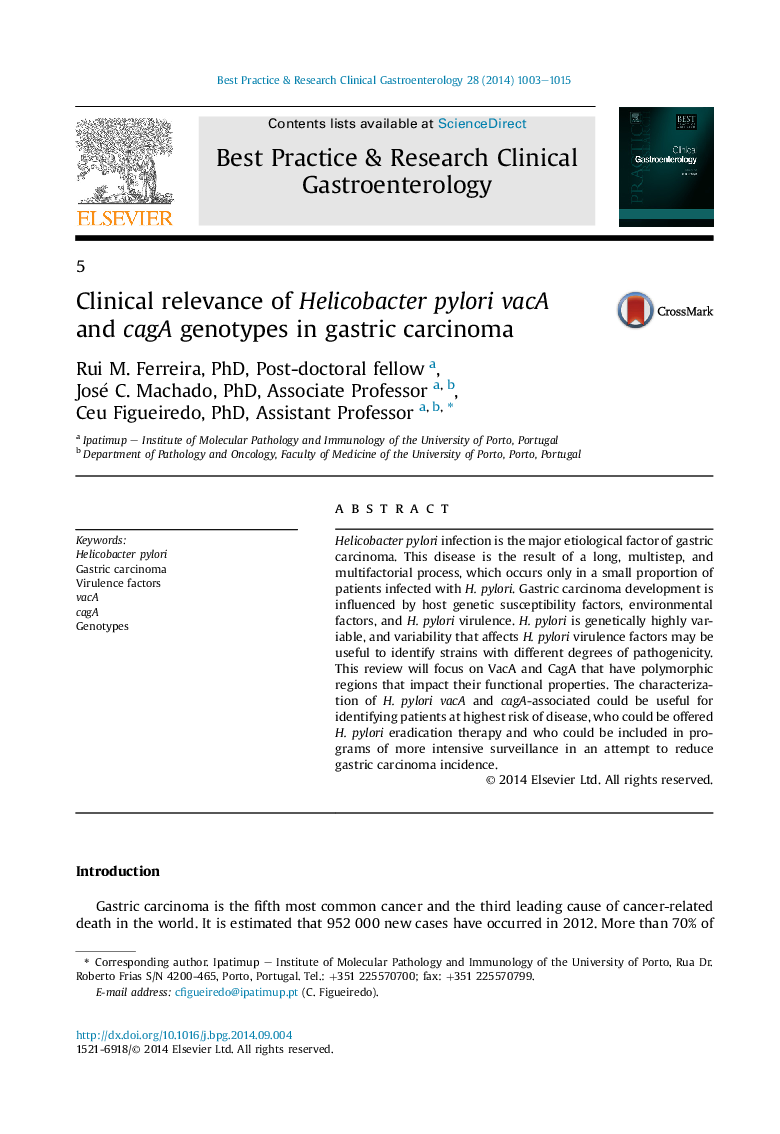| Article ID | Journal | Published Year | Pages | File Type |
|---|---|---|---|---|
| 3254070 | Best Practice & Research Clinical Gastroenterology | 2014 | 13 Pages |
Helicobacter pylori infection is the major etiological factor of gastric carcinoma. This disease is the result of a long, multistep, and multifactorial process, which occurs only in a small proportion of patients infected with H. pylori. Gastric carcinoma development is influenced by host genetic susceptibility factors, environmental factors, and H. pylori virulence. H. pylori is genetically highly variable, and variability that affects H. pylori virulence factors may be useful to identify strains with different degrees of pathogenicity. This review will focus on VacA and CagA that have polymorphic regions that impact their functional properties. The characterization of H. pylori vacA and cagA-associated could be useful for identifying patients at highest risk of disease, who could be offered H. pylori eradication therapy and who could be included in programs of more intensive surveillance in an attempt to reduce gastric carcinoma incidence.
